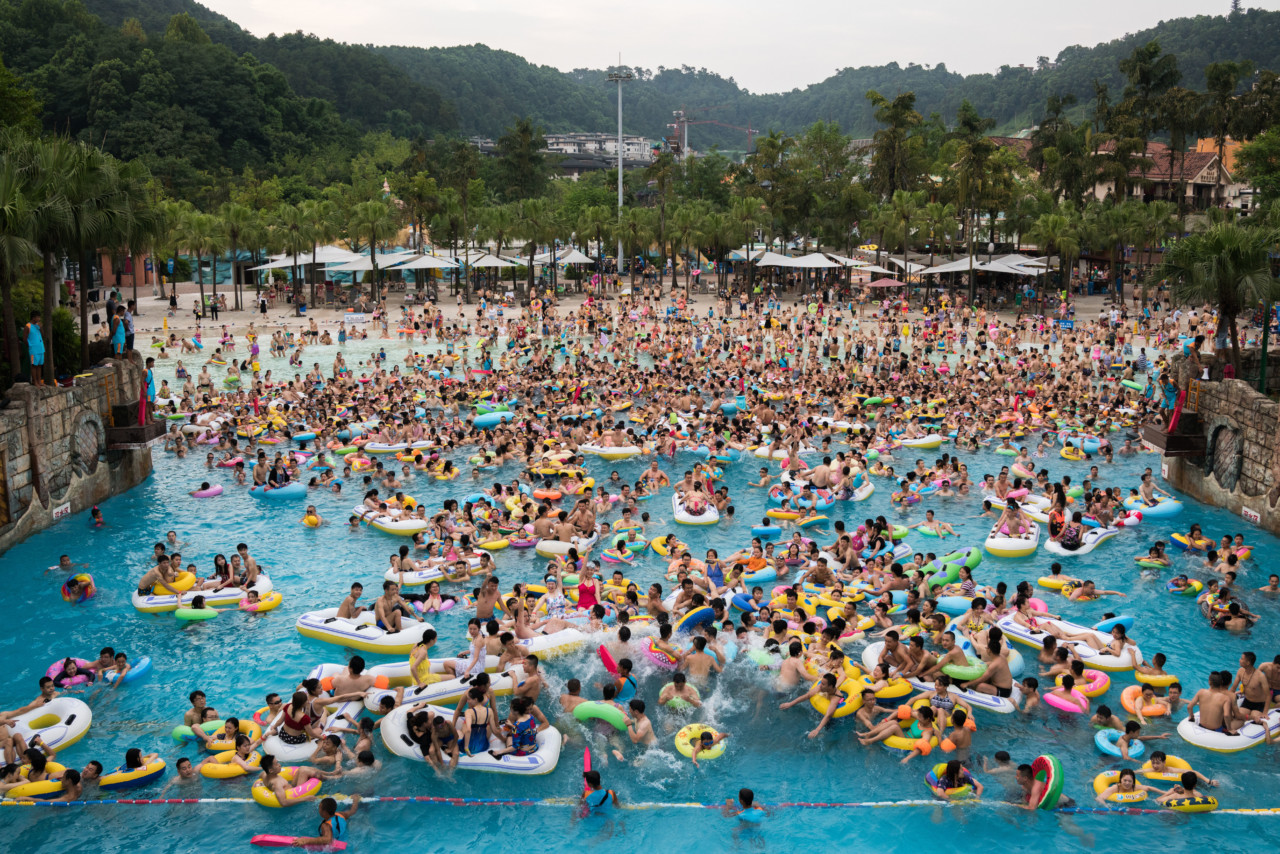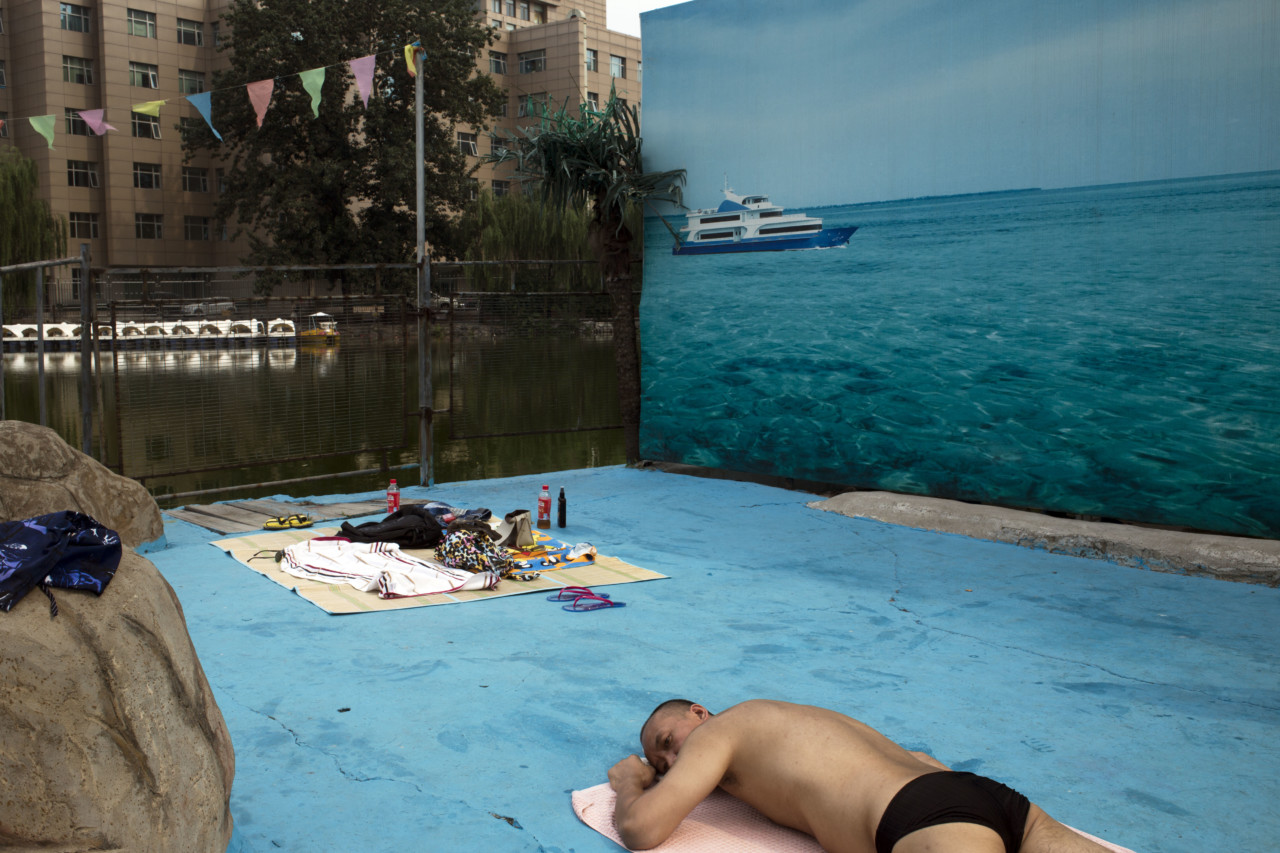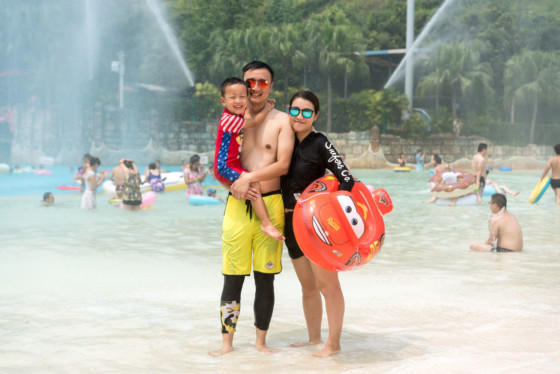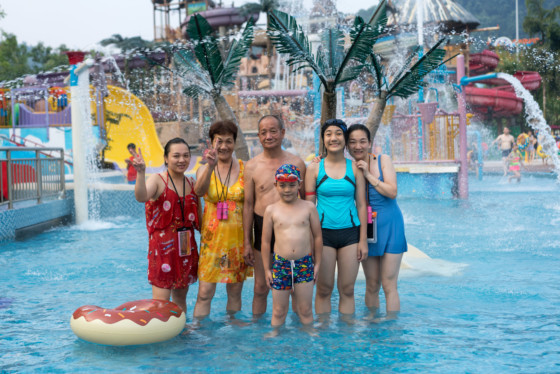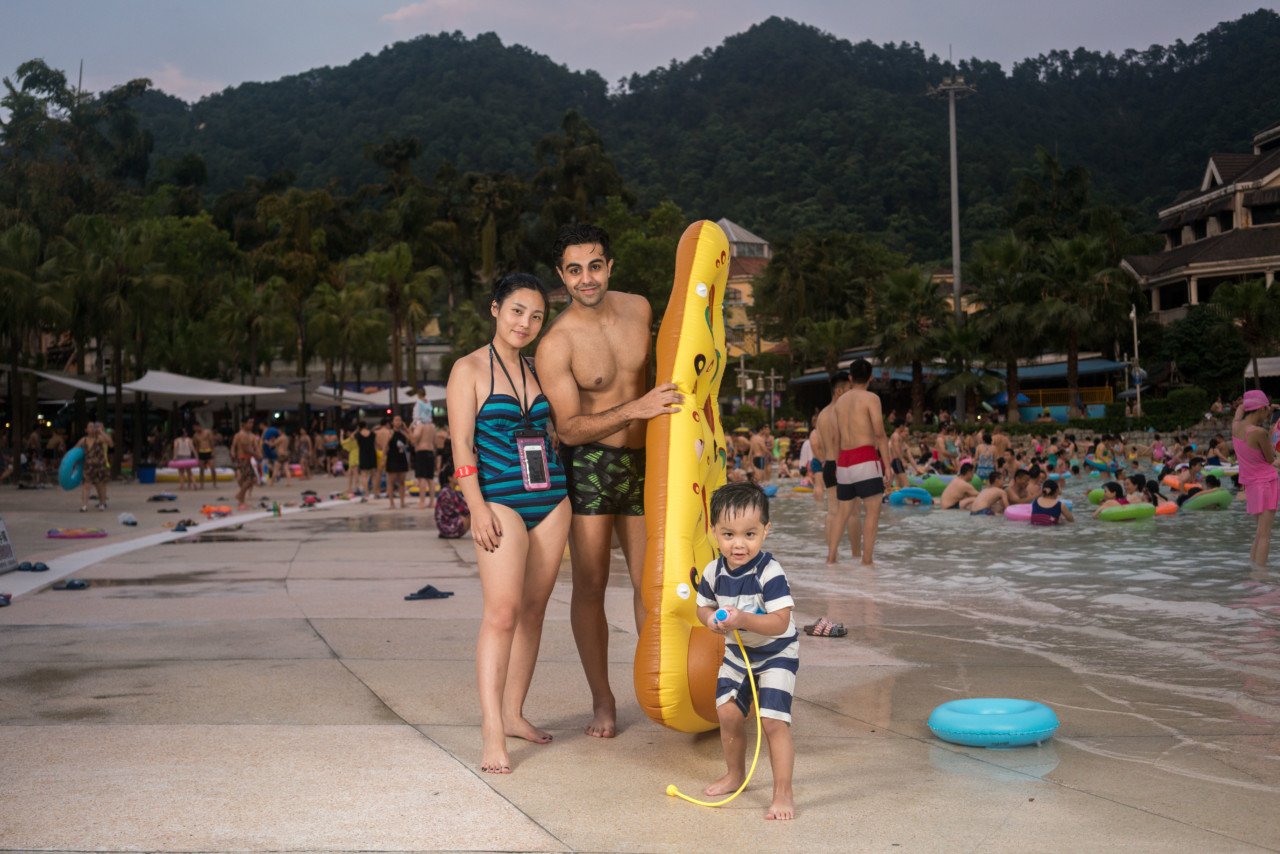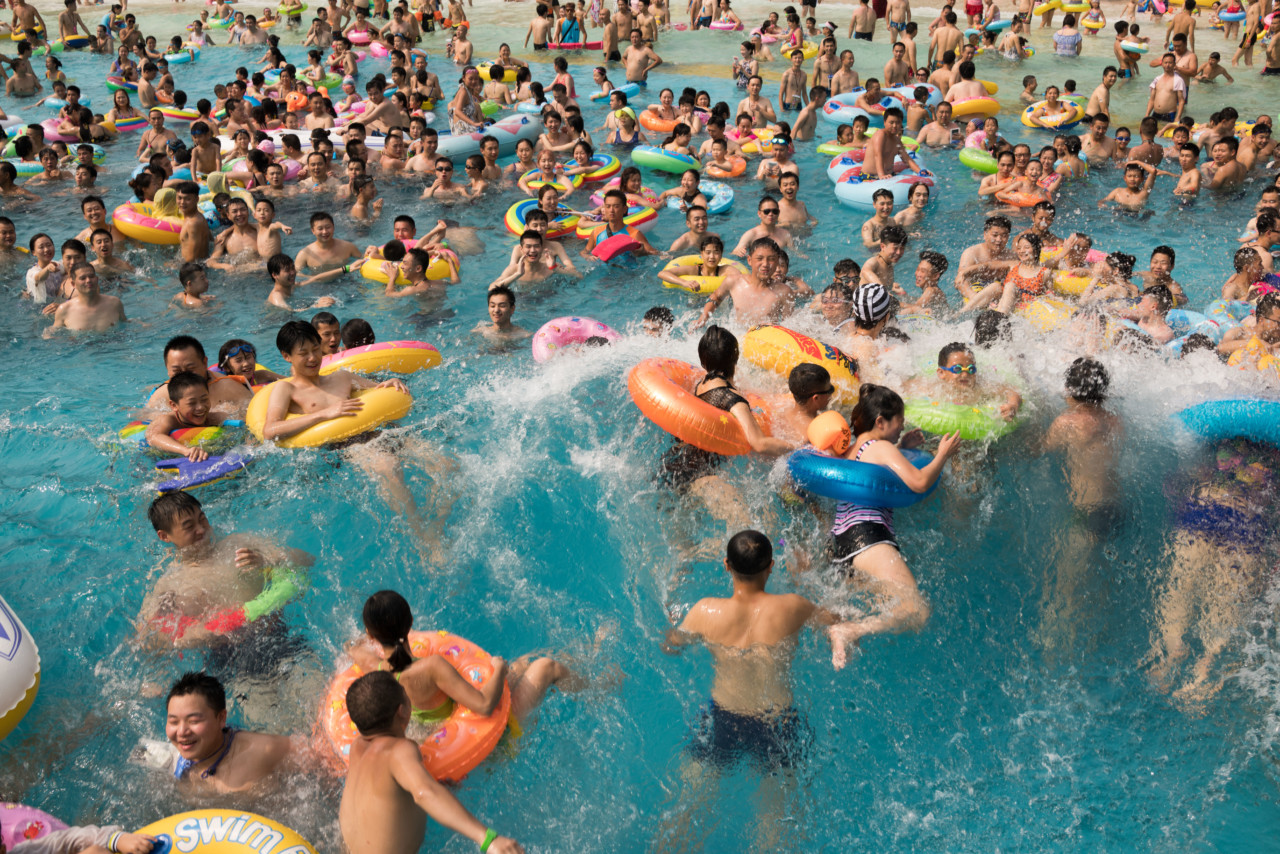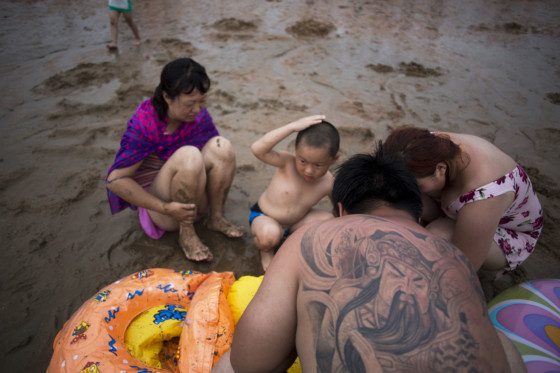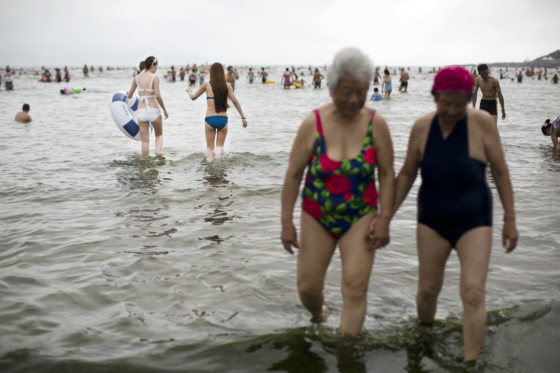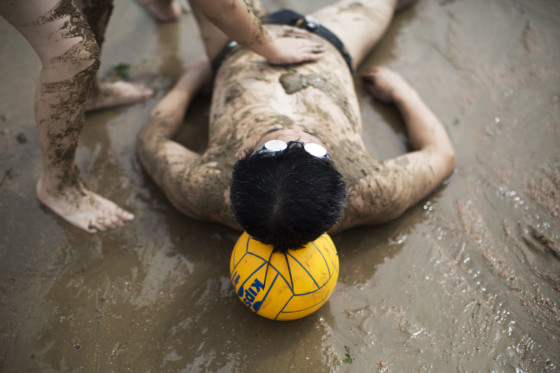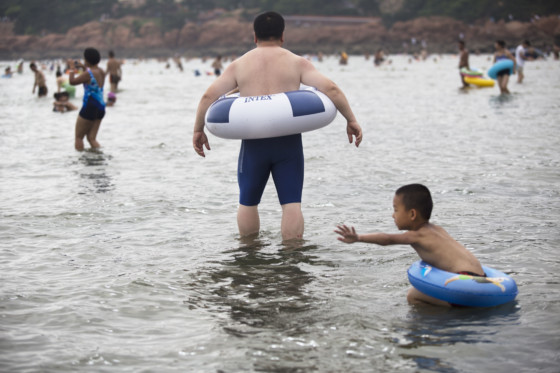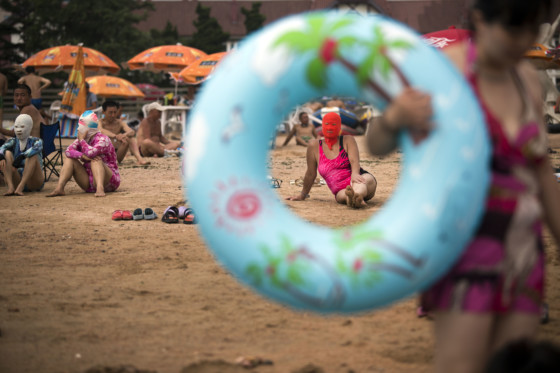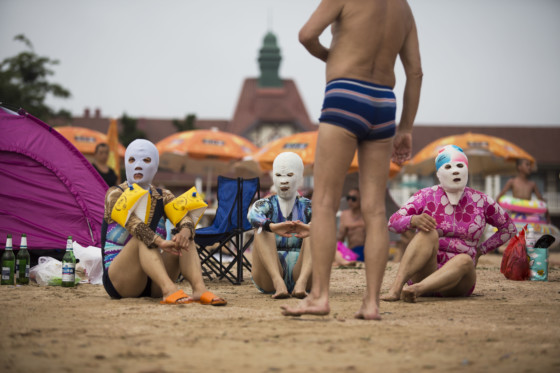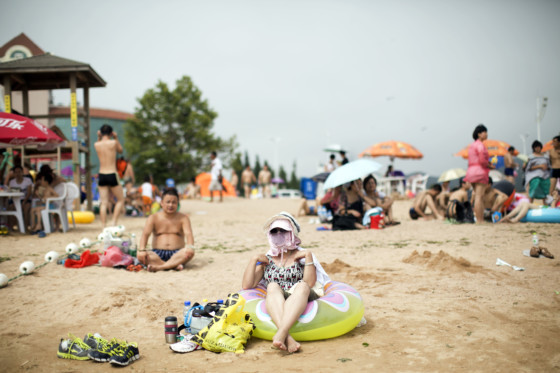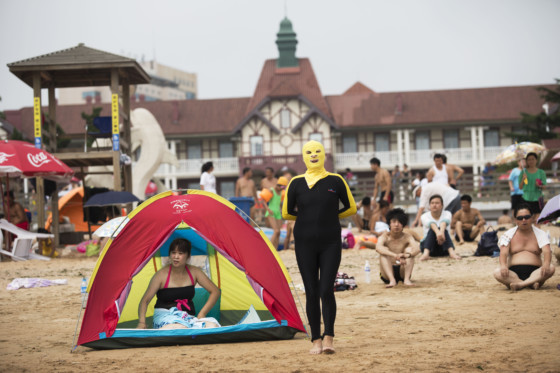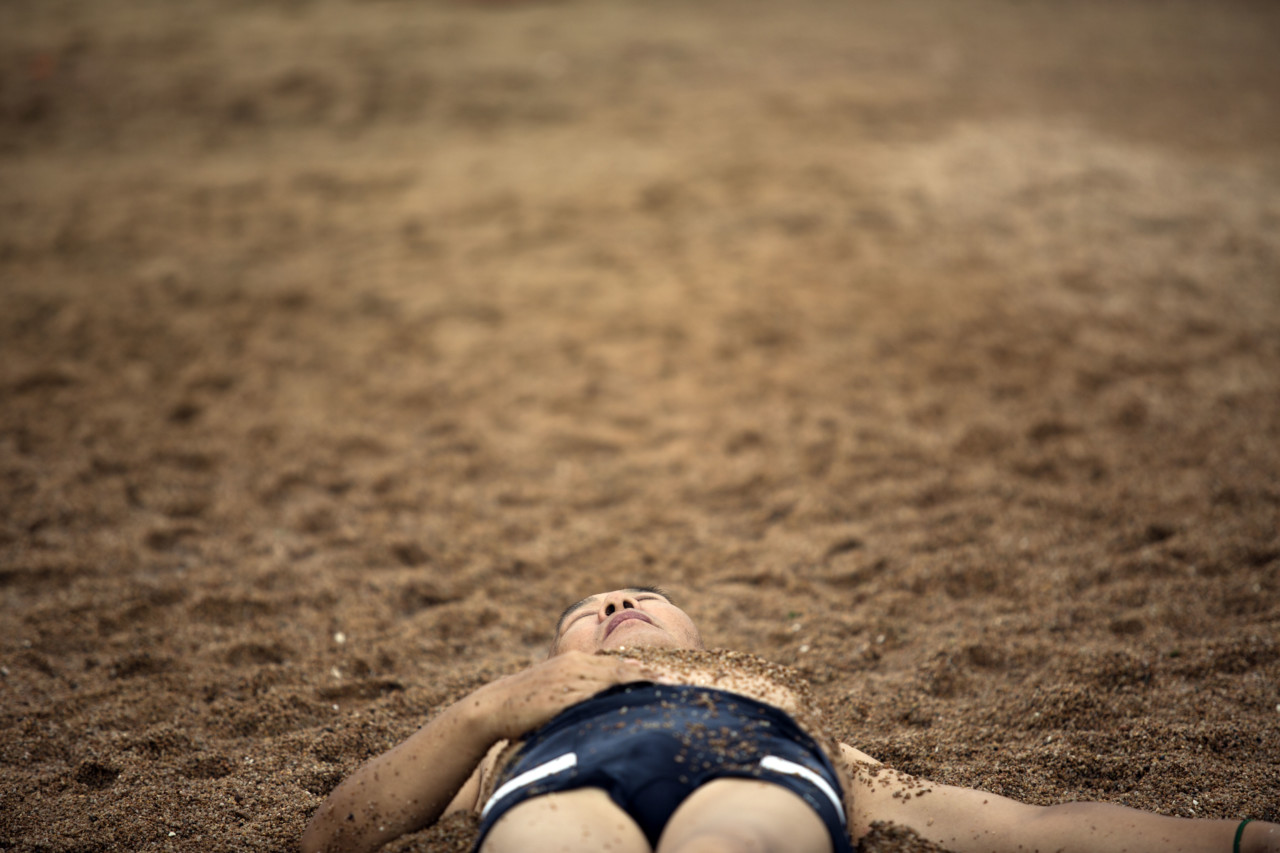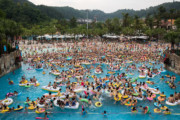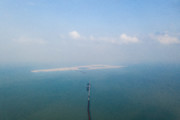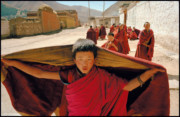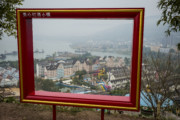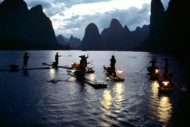Holiday Culture in China
Sim Chi Yin’s documentation of beach culture in China offers a window into the staycation habits of the nation
The work culture in Chinese companies in China can be quite brutal—long hours and few holidays. The “golden week” holidays around National Day (Oct 1) and traditional festivals like Spring Festival (also known as Lunar New Year) are precious to most Chinese workers. There isn’t so much of a culture of work-life balance or taking time off, and self-care has barely taken root in China. It’s a highly, highly competitive society—what with such a large population—and so everyone needs to work long hours, even if not all the hours might be productive, so when there is time off, Chinese families would try to take vacations traveling overseas with their children and families, or day trips to the beach or water theme parks, or other resorts.
As the Chinese have gotten wealthier in recent decades, overseas travel has become the key way they tend to holiday. Chinese tourists are now traveling everywhere, near and far, traditional and exotic. They are traveling in record numbers. For short trips or for those who don’t yet have funds to go overseas, local holidays including to the beach and water parks or pool are quite common choices. Most of these are day trips, though some go to resorts within China and stay a few days.
The places where I have photographed beach and pool culture, I’ve done intermittently and mostly on occasional assignments, I have not attempted to do a Martin Parr! In some coastal cities like Qingdao and Hainan, swimming in the sea is something people do every morning. In other spots like Beijing and Chongqing which are land-locked, a trip to the pool or water-theme park is more like a day trip for the whole family during the summer.
"For short trips or for those who don’t yet have funds to go overseas, local holidays including to the beach and water parks or pool are quite common choices."
- Sim Chi Yin
Chongqing, where I spent a weekend during the heatwave of summer 2017 photographing vacationers for The New York Times’ Magazine’s annual Voyages issue in 2017, is a metropolis in China’s southwest and has the reputation of being a “furnace” in the summer. So families from in and around the city pile into the water theme park where I photographed. It is among China’s most popular water parks— the Chongqing Caribbean Water Park — and is built half way up the Nanshan mountain on the outskirts of the city.
The hourly sessions with waves generated mechanically are the most popular thing in the water park which can receive over 13,000 visitors in a single day on summer weekends. The wave pool is especially a favorite of day-trippers in inland Chongqing who do not get to see or experience the sea much as it is a landlocked city. The wave pool is, for some, the closest thing they have seen or experienced to the ocean, as they told me in interviews and conversations.
"The hourly sessions with waves generated mechanically are the most popular thing in the water park which can receive over 13,000 visitors in a single day on summer weekends."
- Sim Chi Yin
Family plays a big role in Chinese beach culture. As with people elsewhere, vacationing and going to the beach is often a social and family event in China — for young couples with young children, whole families with relatives, or groups of friends. If it’s a day trip or big outing somewhere, the Chinese are more likely to be taking their family or friends. Or they would meet up with their swimming mates by the beach if beach swimming is a regular activity for them. The lone sunbather is probably not as common at water theme parks and beach-side.
In addition to Chongqing, I also spent some time in Qingdao, a city in east China, in Shandong province, facing the Yellow Sea. It’s known for the beer bearing its name, Tsingtao — the brewery was founded by German settlers. Qingdao was occupied by the Germans from 1898 to 1914.
I went there on assignment for The New York Times for a story on the “facekini” — the practice of wearing a face mask made from the Lycra-like material that swimsuits are made from. This is usually worn by the regulars who swim in the sea every day. Often they are wearing full-body swim suits to cover every inch of their skin from the sun — including their faces. We went in search of women — they were almost all women — who wore the “facekini” which was sold in local beachside shops for less than US$5 each. The beaches of Qingdao for a time became known for the facekini but I have seen it on other beaches around China since.
The basic idea on sun protection in China is that traditionally fair skin is sought after as “beautiful” and dark skin is associated with poor peasant people who have to labor in the sun. After all the Chinese are just one generation from having mostly been rural people — it was only in the last ten years that the urban population overtook the rural population in China. Culturally, there’s still a traditional belief that fair skin is more beautiful — because of the association of darker, tanned skin with toiling in the sun. Skin whitening products are fairly common too. So it’s not hard to understand the thinking behind the facekini.
China is by no means the only place where fair skin is valued more highly than tanned skin, speaking very generally — other places in Asia have the same tendencies and penchant for whitening products, Indonesia for example.
The idea of the healthy, tanned look is catching on among younger, gym-going Chinese though and tanning salons have popped up in big cities. I am not a sociologist and haven’t done a survey on this and these are all sweeping generalizations, but would hazard a guess and say there is a growing awareness of the need for sun protection against UV and skin cancer and such, but perhaps for the vast majority of sun-loving Chinese, that understanding of the need for sun protection is underpinned by the aesthetic considerations of being “dark-skinned”. Traditionally though, the Chinese also had the consciousness of the harm of getting too much sun exposure. Farmers work in long sleeve shirts, long trousers and wear big sun hats – and that’s true all over the world!


